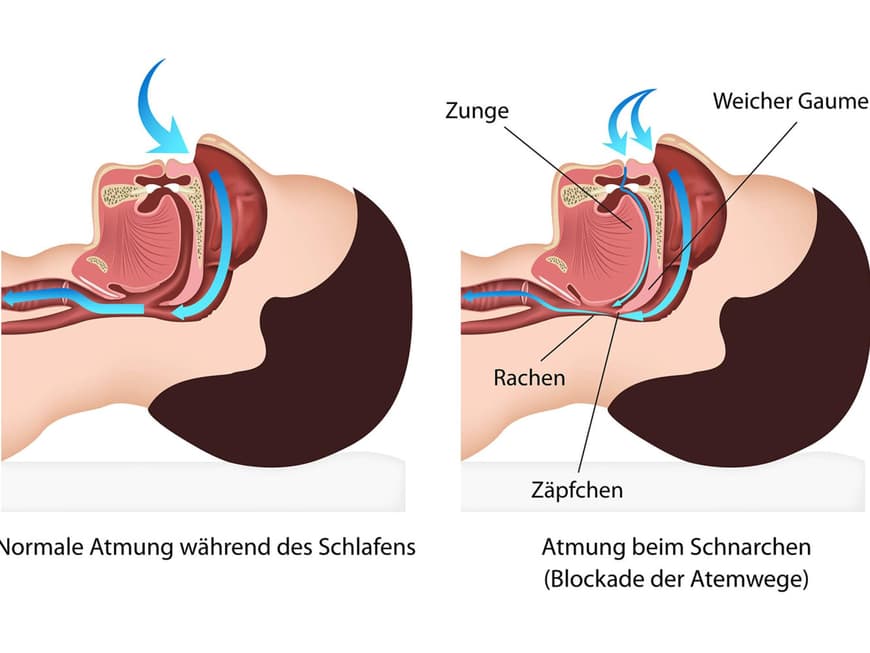Because then your sleep is constantly interrupted - even if you don't notice it yourself. Causes of snoring: poor connective tissue, tonsils, a tongue that is too large, obesity or a large soft palate.
What is sleep apnea?
Snoring is not dangerous in itself. However, if it is accompanied by so-called sleep apnoea - interrupted breathing - you should seek advice from a sleep laboratory. It is estimated that almost one in 20 men and one in 50 women suffer from it. Apnoea is not without its problems: because the body receives too little oxygen, sufferers are unable to sleep during the day and are sometimes so tired that they nod off. In addition, the body cannot regenerate properly as it lacks oxygen, which can result in diabetes or cardiovascular disease.
Five exercises for better connective tissue
But you can do something about the annoying sawing at night: Brazilian scientists have developed five exercises that strengthen the connective tissue on the palate. You should do each of these exercises 20 times a day.
1. press the tip of your tongue against the roof of your mouth and let it slide backwards.
2. the tip of the tongue touches the lower incisors, pushing the back of the tongue downwards.
3. lift the back of the palate and the uvula while saying A.
4. press first the right and then the left cheek muscle outwards with your finger in your mouth.
5. press the tongue firmly against the roof of the mouth.







